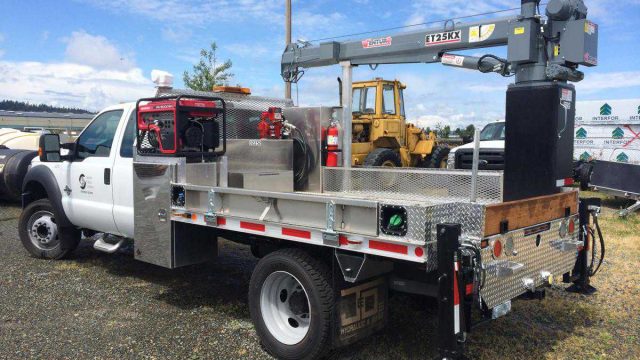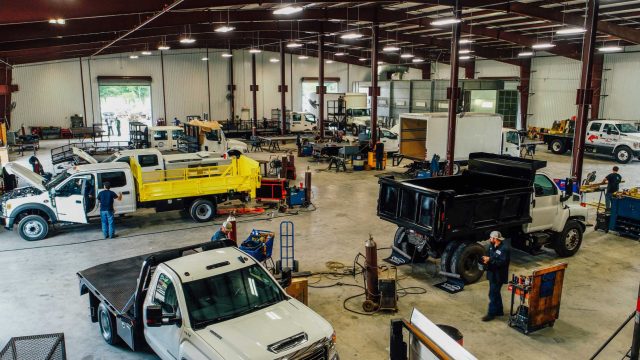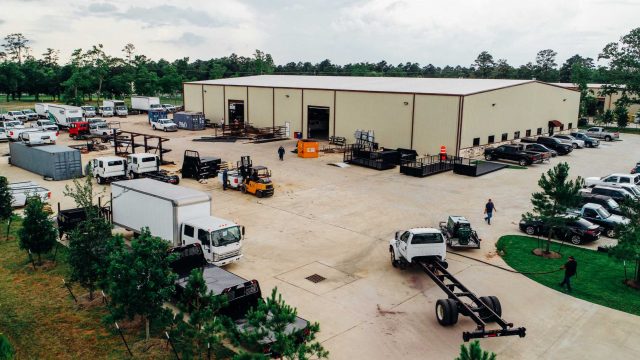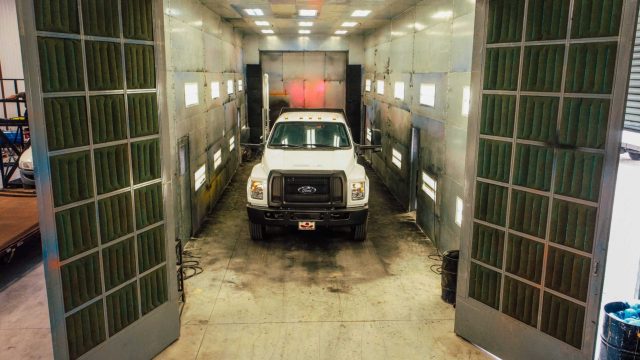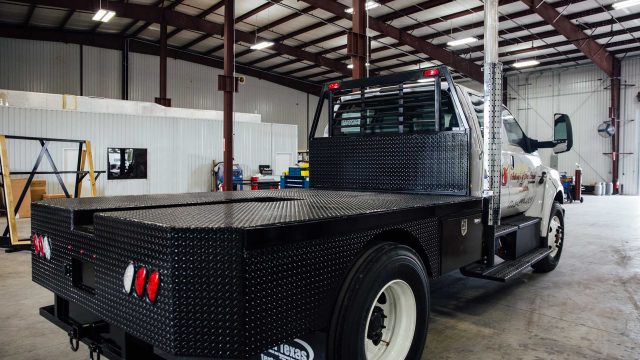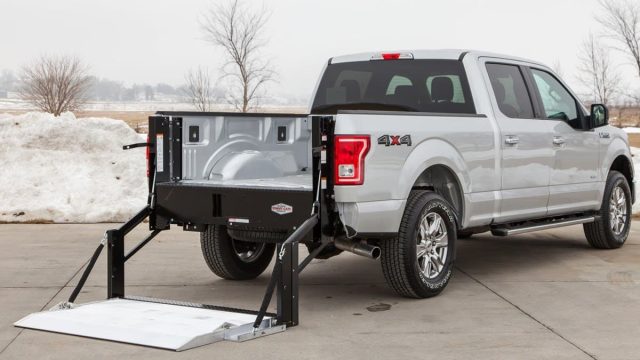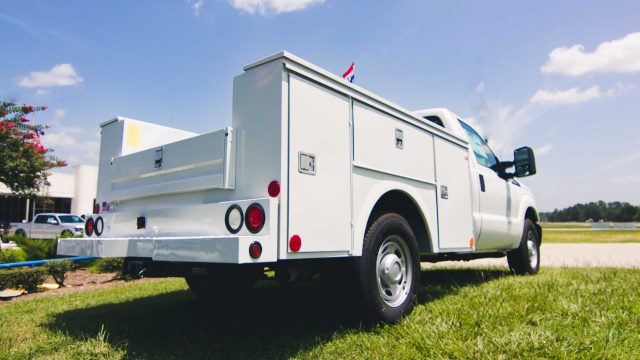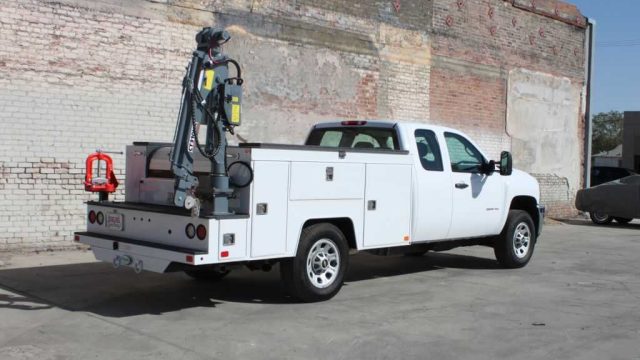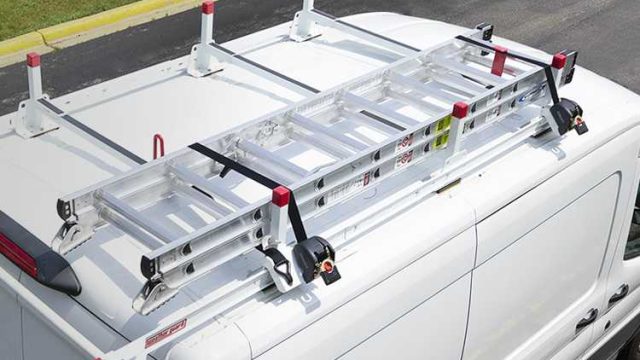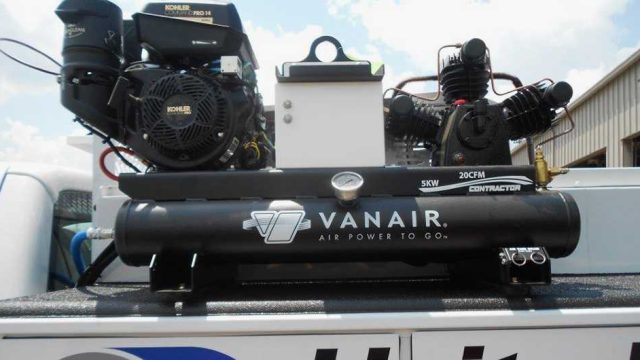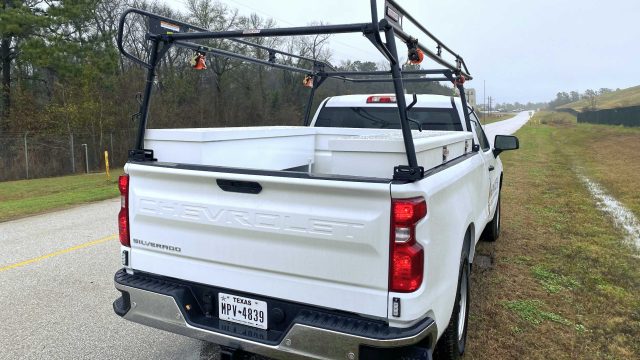In the competitive landscape of the commercial trucking industry in 2024, every fleet operator and manager must continuously strive for increased efficiency and productivity in their operations. A critical aspect of achieving these goals lies in equipping your commercial trucks with well-designed, purpose-built upfit solutions that enable drivers to work smarter, not harder. By investing in innovative upfit options, you’ll optimize your fleet’s capabilities and directly impact your organization’s bottom line.
Join us as we venture into the world of commercial truck upfit solutions and uncover the essential elements that can elevate your fleet’s productivity, ensuring you stay competitive in today’s fast-paced trucking landscape. With prudent planning and strategic investments in the right tools and equipment, your fleet can become a powerhouse of efficiency and profitability.
Custom Storage Systems: Organization for Enhanced Productivity
One of the most impactful upfit solutions for commercial trucks involves the implementation of custom storage systems. By creating a well-organized working environment for drivers, they can access tools and equipment with ease, saving time and reducing frustration. Custom storage options include toolboxes, drawer units, shelving, and secure cargo partitions that cater to your specific operational requirements. These storage systems are designed to maximize space utilization, providing additional capacity for cargo and preventing equipment from becoming disorganized or damaged during transportation.
Ergonomic Upgrades: Driver Comfort for Improved Efficiency
A comfortable and ergonomic working environment is directly linked to increased productivity. By investing in ergonomic upfit solutions, you can boost the morale and performance of your drivers, leading to more efficient operations. Examples of ergonomic upgrades for commercial trucks include adjustable seating options that provide proper lumbar support, custom steering wheel controls, and easy-to-navigate control panels. Additionally, temperature management technologies such as climate control systems contribute to a comfortable working environment. Ensuring that your drivers feel comfortable and supported throughout their workday not only minimizes the risk of injury but also bolsters their overall productivity.
Mobile Power Solutions: On-The-Go Energy for Seamless Operations
Access to reliable power sources is essential for the smooth operation of a commercial truck fleet. By equipping your trucks with mobile power solutions, you can provide your drivers with the on-the-go ability to charge power tools, run auxiliary equipment, and utilize advanced telematics systems without worry. Mobile power solutions range from heavy-duty power inverters, auxiliary battery systems, and generator-equipped trailers. These power sources can help maintain consistent operations, reduce downtime, and support your drivers in delivering their best work, ultimately contributing to increased productivity.
Connectivity and Technology Integration: Streamlined Communication and Real-Time Insights
In the age of digitalization, equipping your commercial trucks with advanced connectivity and technology integration solutions is a must for efficiency and productivity. By enabling access to real-time information and streamlined communication between drivers and fleet managers, you can make informed decisions and adapt to changing circumstances quickly. Integration options include advanced telematics systems for fleet tracking and analytics, GPS navigation solutions, and dedicated mobile applications for seamless task management. Moreover, hands-free communication devices and cutting-edge dashboard interfaces can all contribute to enhanced productivity and a well-informed work environment.
Heavy-Duty Safety Features: Prioritizing Driver and Cargo Security
Safety is paramount in the commercial trucking industry, and investing in heavy-duty safety features can significantly enhance driver confidence and cargo security. Upfit solutions in this category include advanced locking mechanisms for cargo compartments, reinforced doors and windows, and integrated camera systems for enhanced visibility. Additionally, technologies such as collision avoidance systems and lane departure warnings can help prevent accidents and minimize the risk of costly downtime due to repairs or legal issues. By prioritizing safety through robust upfit solutions, fleet operators can protect their assets and personnel while maintaining uninterrupted operations.
Tailored Driver Training Programs: Maximizing Efficiency through Skill Development
Beyond physical upfit solutions, investing in tailored driver training programs can yield substantial improvements in fleet efficiency and productivity. These programs are designed to enhance driver skills in areas such as fuel-efficient driving techniques, preventive maintenance procedures, and route optimization strategies. By empowering drivers with the knowledge and tools to make informed decisions on the road, fleet operators can minimize fuel consumption, reduce vehicle wear and tear, and optimize delivery schedules. Furthermore, ongoing training initiatives foster a culture of continuous improvement within the organization, ensuring that drivers remain abreast of industry best practices and technological advancements.
Proactive Maintenance Protocols: Ensuring Reliability and Longevity of Fleet Assets
Preventive maintenance is key to maximizing uptime and prolonging the lifespan of commercial truck assets. Implementing proactive maintenance protocols through upfit solutions can help identify and address potential issues before they escalate into costly breakdowns or repairs. These protocols may include onboard diagnostics systems for real-time monitoring of vehicle health, scheduled maintenance reminders, and remote diagnostics capabilities for swift troubleshooting. By staying ahead of maintenance requirements, fleet operators can minimize unplanned downtime, optimize vehicle performance, and uphold service reliability, ultimately bolstering overall productivity and customer satisfaction.
Adaptive Load Management Systems: Optimizing Cargo Distribution for Efficiency
Efficient cargo management is essential for maximizing payload capacity and minimizing fuel consumption in commercial trucking operations. Adaptive load management systems leverage advanced sensors and algorithms to dynamically adjust load distribution within the vehicle based on factors such as weight distribution, road conditions, and driving dynamics. By optimizing cargo distribution in real-time, these systems help maintain vehicle stability, reduce wear on tires and suspension components, and enhance overall fuel efficiency. Fleet operators can reap significant benefits from integrating adaptive load management systems into their upfit solutions, including improved safety, reduced operating costs, and enhanced competitiveness in the marketplace.
As we forge ahead in the competitive arena of commercial trucking in 2024, the need for increased productivity and efficiency in fleet operations continues to grow. By strategically investing in well-designed upfit solutions, such as custom storage systems, ergonomic upgrades, mobile power options, and connectivity and technology integration, you’re setting the stage for your fleet’s success in today’s fast-paced market.
At TER Texas, we’re committed to helping you stay ahead in the rapidly evolving trucking industry. Our commercial truck upfitters are fully equipped with the knowledge and tools necessary to provide customized solutions tailored to your operational needs. Reach out to us today to explore how we can help you maximize your fleet’s productivity and stay competitive in the bustling Houston area and beyond.

